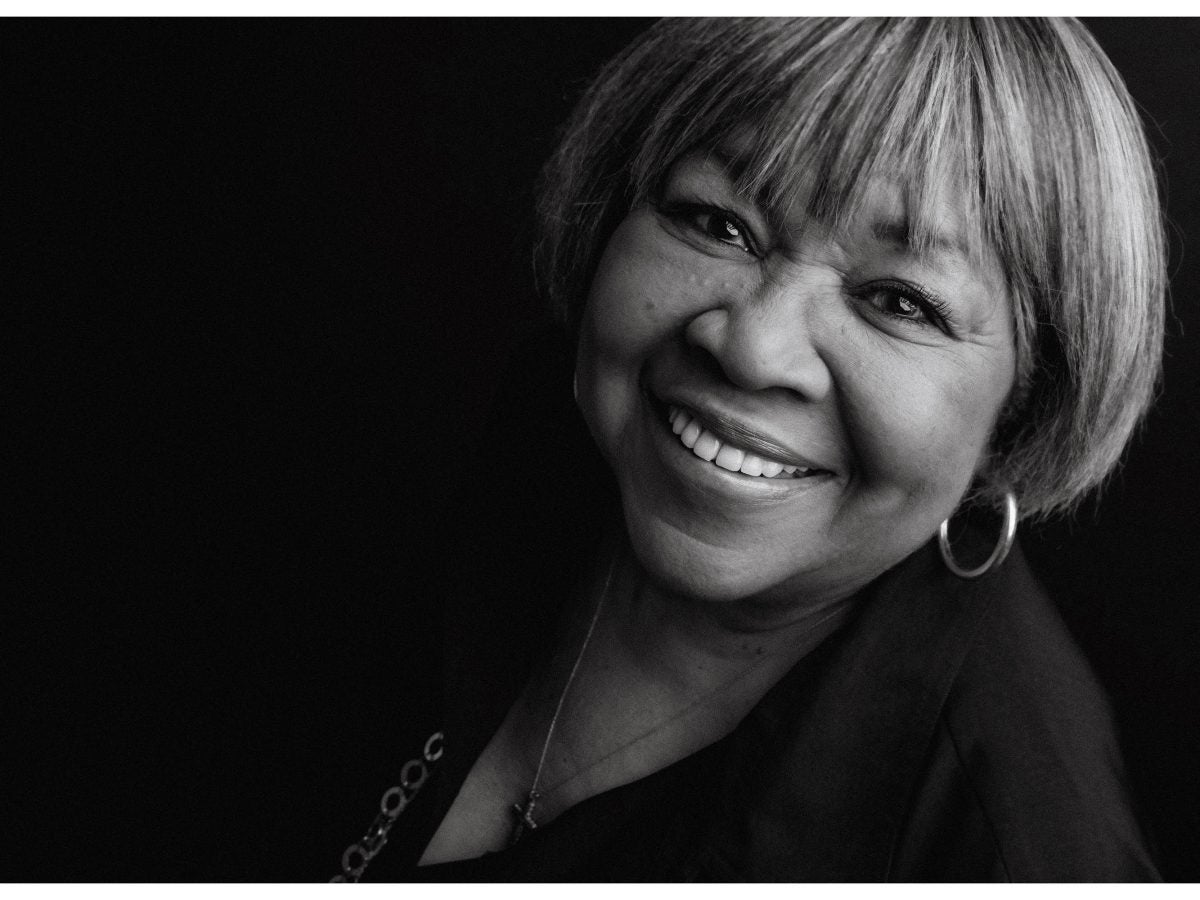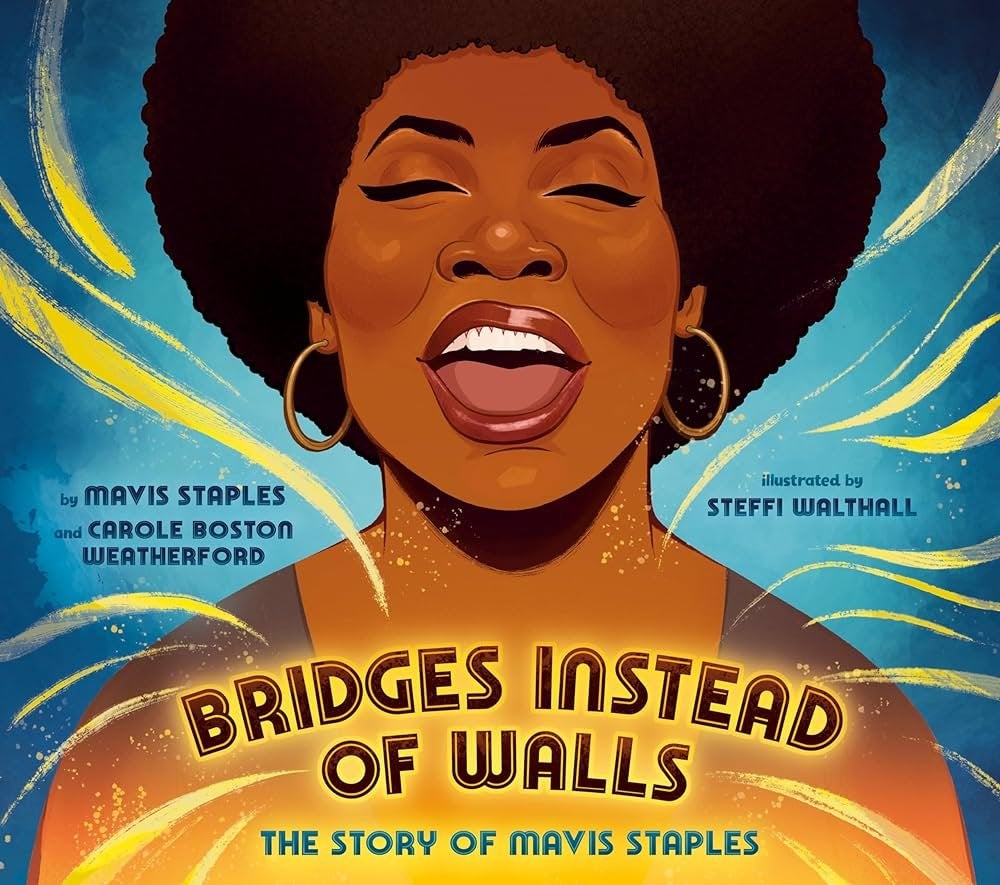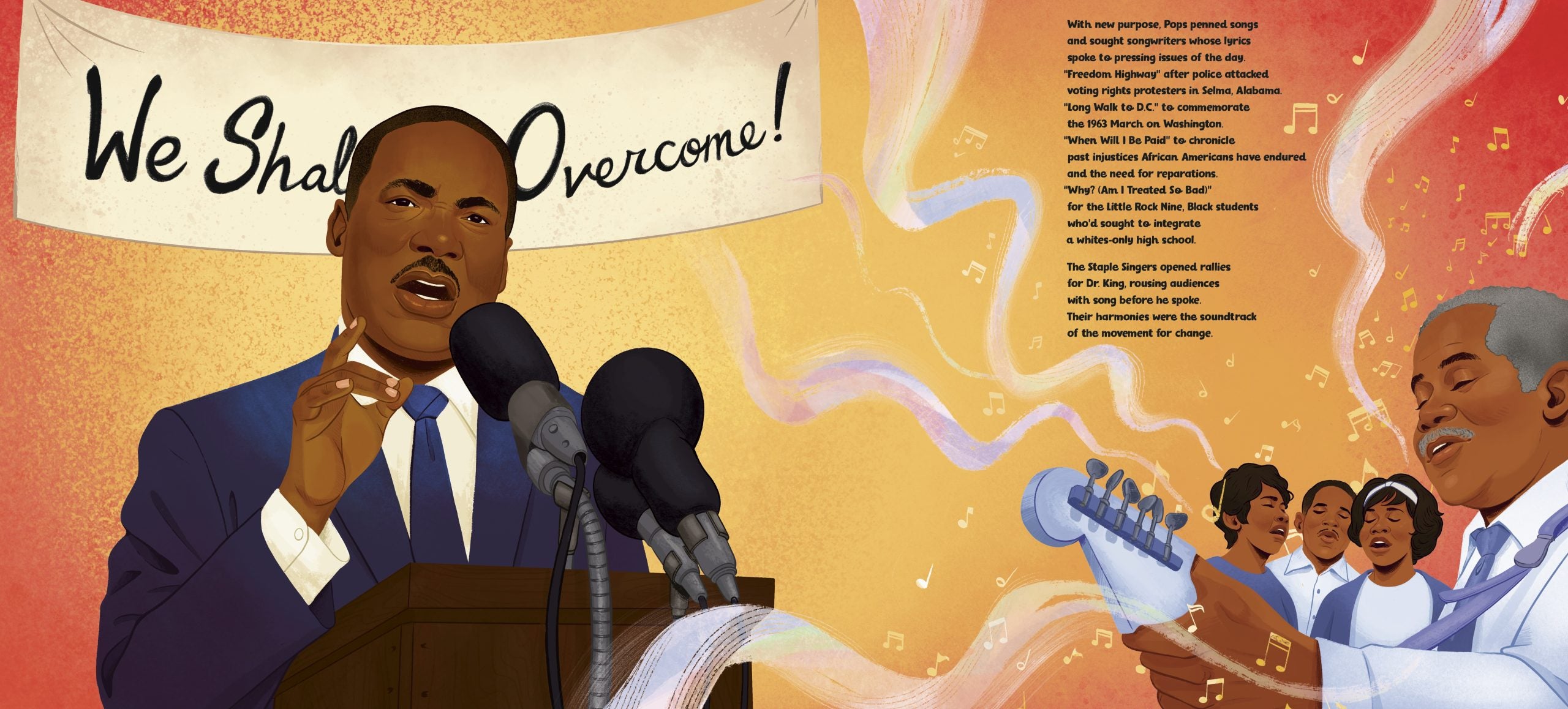
Mavis Staples remembers. In her new children’s book, Bridges Instead of Walls: The Story of Mavis Staples, she reaches back to when her father determined the type of music that was permissible to play in their home. Hearty harmonies from male groups like the Dixie Hummingbirds and the Soul Stirrers, whom Ms. Staples would later share marquee billing with, made what she calls “old-time religion” gospel and thus were welcome. She’s a little girl again when she tells me stories about meeting Mahalia Jackson (“She was my idol,”) and singing with her during the en plain air concert shown in the Summer of Soul film. She also remembers touring the Deep South and seeing “For Colored” signs looming over water fountains.
The Black American memory bank is something else; a trove of dangerous, bitter social rejections and a pocketful of warm promises. Maya Angelou’s poem “The Memory” captures this anguish, longing and hope. “Cotton rows crisscross the world/And dead-tired nights of yearning…Sugar cane reach up to God..,” she wrote in 1978’s And Still I Rise. We tell stories as if we’re gesturing one hand towards the mucky, trodden road behind us while using the other to clear the brush for the one ahead. As Ms. Staples, a gospel giant and devoted change agent, celebrates her 85th birthday in July, she is happy to spell out this and her legacy.

“I felt that it was time for me to do a children’s book,” Ms. Staples says via phone. It was her idea, which she then brought to her manager in 2022, who helped get the project rolling. “I’ve been out here a long time…and the children would come to the shows and it would mostly be children who would tell me, Ms. Mavis, you rock.” (She is in the Rock & Roll Hall of Fame, after all.) “And it would tickle me so bad because they are just so innocent and pure. When I run into children, I’ma tell you, I could be in a bad mood, but you bring some children around me and I turn into a child again.”
Ms. Staples was a child when she started singing with her father (Roebuck “Pops” Staples) and siblings (Cleotha, Yvonne, and Pervis) in the 1940s. Her thunderbolt of a voice had depth beyond its years, making it the natural lead for the group’s bluesy delivery. Today, that voice is just as down-home and smoky as you remember. You can’t help but smile when she laughs. The group won listeners over with renditions of hymnals like “Uncloudy Day,” and by the time Ms. Staples was in her teens, they were traveling the country for shows — and seeing those water fountains.
Young people have an allegiance to truth. No matter the generation, be it the student protests of Vietnam in the 1960s or Gen Z’s Freedom March for civil rights, there is a seed of fairness embedded in the youth that, when untampered with, can be used to till a new world. With the encouragement of her father, Ms. Staples became one of those freedom fighters through song, lending her talent to eternally moving records like “I’ll Take You There” and “Long Walk to D.C.” She made her mark alongside equally convicted singers like Nina Simone, Aretha Franklin, and Odetta.

Bridges Instead of Walls was co-written with the Caldecott-winning author Carole Boston Weatherford. Ms. Staples’ manager introduced the two, and the singer was impressed with the writer’s 2017 rendering of “her favorite lady,” Lena Horne. Ms. Weatherford believes younger audiences can handle the truth, even when adults are trepid. “Children know how to interrogate injustice,” she says. “They know injustice when they see it, and they know how to ask the right questions when they are presented with tough topics,” she says. “She reveled in the opportunity to write with a ‘60s crusader. “There are so many African-American women activists who were civil rights activists who have been overlooked and have not gotten the credit they’re due. So it was really a delight for me to delve into Mavis, not only her musical background but also her activism, and to share that story with children.”
Together, they combed through seven decades of stone-cold singing, documenting Ms. Staples’ childhood in Sam Cooke’s Chicago to her rise to become one of the most grounding forces of the 20th century. It touches on her father’s course-altering meeting with Dr. Martin Luther King Jr., the group’s decision to embrace soul music, and Ms. Staples’ top-notch audience, including President Kennedy and Prince. The book is illustrated by Staffi Wathall, a digital illustrator with several children’s books to her credit, including The Story of Simone Biles. The vivid imagery undergirds Ms. Staples’ rich spiritual and earthly journey.







“Do I think we have progressed since the civil rights movement? Oh yes. I think we’ve done good,” Ms. Staples says. “We’ve done good, but we have a long way to go. We still have work to do. Ninety-nine and a half just won’t do.”
Mavis Staples remembers. New generations will remember, too.
Purchase Bridges Instead of Walls: The Story of Mavis Staples here.





